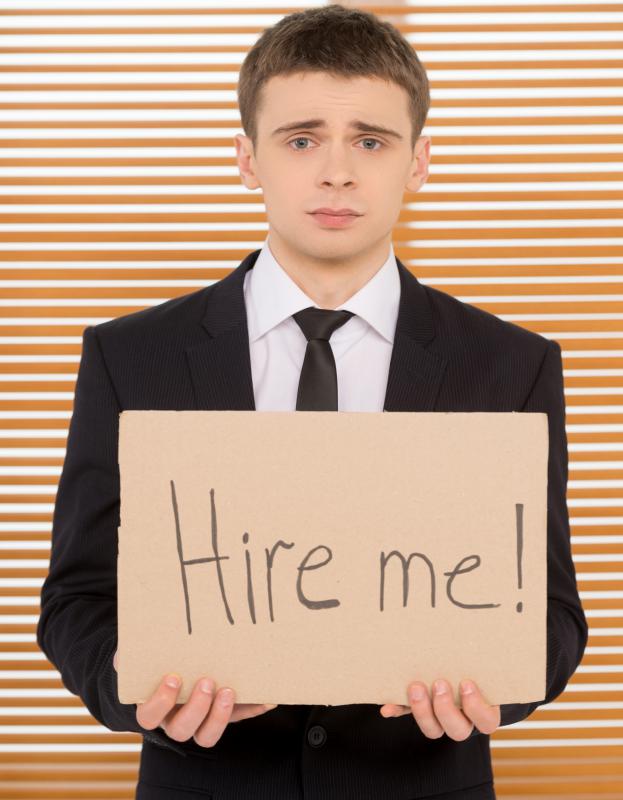At WiseGEEK, we're committed to delivering accurate, trustworthy information. Our expert-authored content is rigorously fact-checked and sourced from credible authorities. Discover how we uphold the highest standards in providing you with reliable knowledge.
What Influences Economic Growth?
Economic growth is fueled by government policy, productivity, capital investments, and consumer spending. These factors allow for sustained economic development that eventually leads to the expansion of a region or country's economy. Such economic growth improves employment, income, and standard of living for citizens. The components of economic growth are not mutually exclusive and often have a symbiotic relationship with each other. Alternatively, these inputs for economic growth can cause an economy to expand too quickly and have negative long-term effects.
Fiscal and monetary policies enacted by the government impact economic growth. The use of taxation, public debt, and government expenditures to influence the business cycle is called fiscal policy. Taxation provides the government with income. Such revenue is used towards the improvement of infrastructure; infrastructure allows goods and services to be provided at less of the cost to consumers or businesses due to faster transport. Governments also use taxes to provide businesses with grants or loans for expansion, research, and development or hiring purposes.

Monetary policy is determined through changes in interest rates and allow governments to encourage economic growth and capital spending through borrowing. Low interest rates decrease the cost of borrowing capital from banks for investing or business expansion. Consumer spending on expensive purchases requiring long-term financing, like homes or vehicles, increase for the same reason. Consequently, industries expand due to increase capital investments or demand from consumers.

Expanding businesses or companies operating in industries where consumer demand is high must improve productivity to sustain economic growth. Companies must have access to an educated and skilled labor supply. This leads to higher output due to mass production and increases total income for the population. Technological improvements brought about through capital investments also allow companies to provide goods and services more efficiently at reduced costs, consequently increasing their output.

Capital investments allow companies to increase the size of the workforce. Reduced unemployment increases the overall prosperity of an area which in turn increases consumer demand. Businesses respond to this demand by making capital investments in technology or equipment for faster output. Eventually such efficient production allows a company to export such goods to foreign markets, providing more economic growth.

There are perils associated with economic growth. If consumer demand brought about by a higher workforce or the attractiveness of loans due to lower interest rates exceeds the supply, prices for such goods and services will rise to a level that causes inflation. As a result, consumer demands for such overpriced goods will decrease and cause businesses to take financial losses or lay off employees. Falling prices combined with rising unemployment causes economic growth to slow or cease. This leads to a recession.
AS FEATURED ON:
AS FEATURED ON:














Discussion Comments
@SarahGen-- It's a bit difficult to explain this. Yes, inflation is bad for economic growth. If economic growth is caused by true growth, that is increased production and wealth, then inflation will go down. But if economic growth is caused by increased spending thanks to loans or the federal bank flooding the market with currency, this can lead to more inflation in the long run. So it depends on the type of economic growth. For the most part though, economic growth and inflation have an inverse relationship.
So inflation is bad for economic growth right? Economic growth slows down when inflation is high. So when the economy is growing, shouldn't that lead to lower inflation? Some people say that economic growth causes inflation too. I don't understand the relationship between inflation and economic growth.
Government policy has a huge impact on the economy and on economic growth. Normally, in a free market, the government isn't supposed to intervene. But there really is no such thing. Some government intervention is always necessary. Sometimes the government policies benefit the economy, but there are also times when it negatively affects economic growth.
Part of the issue is that the government is under pressure from the public and has to keep public approval up. So when the economy is not doing well, governments try to improve it through policy. But those policies may end up damaging the economy further in the long term. But politicians often think about the short term, they think about their term in office and want things to be good when they are in office. Often, the newly elected President and representatives inherit a lot of economic problems that they are forced to dig out of.
Post your comments